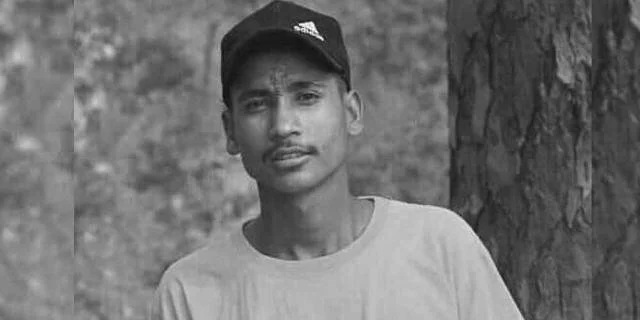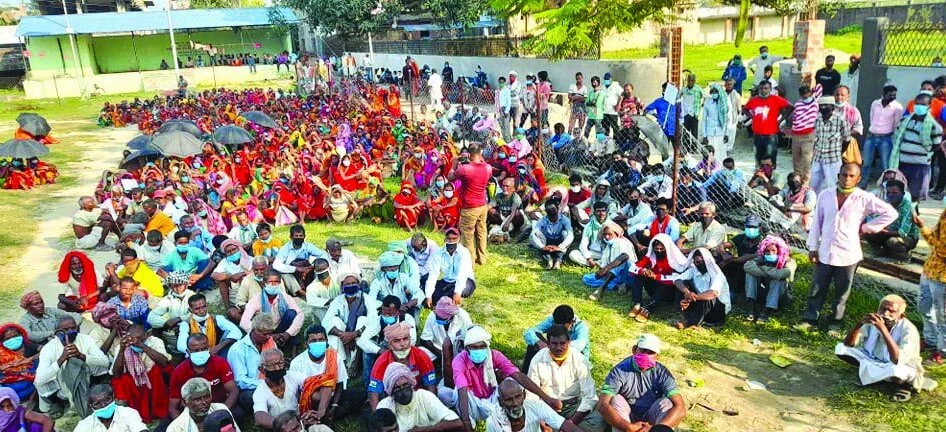Violence Against Dalits in Nepal
By: Sujata B. Chhetri
Content warning: death, caste-based violence
On May 24, 2020, two Dalit boys, Nawaraj Bishwakarama (BK) and Tika Ram Sunar, were found dead on the Bheri riverbank in Southern Nepal, as reported by the non-profit organization, Global Voices. Three other bodies were later discovered, while another young man is reportedly still missing. The main explanation for their deaths was considered to be an inter-caste love relationship.
Nawaraj Bishwakarama, a victim of a caste-based murder. Source: Ratopati
Nawaraj, a 21-year-old man from Jajarkot, was born into a Dalit family. He was in love with Sushma Malla, a 17-year-old upper caste girl. Nawaraj and his family received repeated threats to stay away from her when Sushma’s family heard about their relationship. He was even reported to the police, Global Voices reported.
Despite their forbidden love, the two lovers made plans to elope on the night of May 23. That night, Nawaraj, along with 18 of his friends, went to Sushma’s village, oblivious of the tragic fate ahead of him. When they arrived, they were chased, beaten and stoned to death. According to Global Voices, out of the 18 friends, some managed to escape, but Nawaraj and five others were not so lucky. One survivor later described how seriously injured Nawaraj was. He was unable to move and was thrown in a nearby river, in such a condition that he couldn’t even swim to save himself.
After I read about this incident online, I was shook. Quite literally. I was disgusted at the perpetrators. I was disappointed. I felt angry. I felt sad. As a flood of emotions swept over me, all I could think was, “It’s 2020.” I was in utter disbelief that something like this could happen today. I cannot understand how one sane human being could commit such an atrocious crime against another human being. For what? For falling in love. Part of me wished that this was all a sick joke or simply just a bad dream. Alas, the reality is something completely different from what I wished.
Dalits in Nepal are a historically marginalized minority, excluded from mainstream national growth due to the caste system and extremist Hinduism for centuries. The International Dalit Solidarity Network states that Dalits make up 13.6% of the total population in Nepal based on the 2011 census, though other sources say the number could be much higher.
According to the Nepal National Dalit Social Welfare Organization (NNDSWO), the caste system was implemented in Nepal by King Jayasthiti Malla around 700 years ago. The National Civil Code of 1854 defined the system as a legal framework, outlining specific punishments for inter-caste conduct and the limitations of social mobility. Over time, such hierarchical policies that legalized discrimination have led to a long-held belief structure and mentality still prevalent in every sector of society. NNDSWO states that this has furthered the idea of “untouchability” and other forms of caste-based discrimination, even though it is legally forbidden in Article 18 of Nepal’s Constitution.
Hundreds of Dalit people at a demonstration in Saptari, Nepal on October 15th, demanding an end to the violence and discrimination against their community. Source: The Himalayan Times
Dalits today also continue to face continuous social prejudice in violent forms, from hate speech and abuse to rape and murder. The International Dalit Solidarity Network states that Dalit women have little autonomy with land and money, and thousands of Dalit girls are forced into prostitution on an annual basis. Global Voices points to stories of young Dalit girls forced into marrying their upper-caste rapist and being murdered after. In one case, a young Dalit man was found dead shortly after getting married to his upper-caste girlfriend. By the time his family arrived at the scene, the police had already “taken care” of the case, with no proper investigation, and declared the death a suicide. Despite the country announcing itself an untouchability-free nation in 2006, rules and regulations are not strictly enforced, and many instances of caste-based discrimination are overlooked.
Additionally, other social practices deny Dalits of their basic human rights. As stated by the Asia-Pacific Human Rights Information Center, Dalits still face discriminatory practices involving food and drink. For example, if food or drink happens to come into contact with a Dalit, the upper castes refuse to consume it. Other sources of disrimination include being barred from entering houses, temples and the use of other public amenities. Moreover, untouchability is also maintained in schools; children are often neglected by their teachers and may be discouraged from pursuing higher education.
Poverty along with these factors make it very hard for Dalits to break the cycle of social exclusion, and gain personal as well as political autonomy. The Asia-Pacific Human Rights Information Center states that Dalits are forced to do caste-based work, such as blacksmithing and working as shoemakers and street cleaners. Dalit women and children also often do not get justifiable wage for their work. Those working in bonded labor or forced labor do not even earn any money. Instead, all they can hope for is something to fill up their stomach.
The list can go on, but the way Dalits are treated is jarring and inhumane.
As a Nepali, it is truly frustrating to see such injustice toward other Nepalis. I remember feeling so ashamed and confused when I first learned about the caste system and Nepal’s disgraceful history regarding this matter. However, today I feel hopeful that we can slowly but surely dismantle this flawed system and eradicate the mentality that still plagues many Nepalis across the country. After the murder of Nawaraj, various human rights organizations and Dalit leaders have been pressuring the government to take immediate action on the case and provide justice to the victims’ families. Many are working to ensure that this does not just become another story lost in the pile.
I feel hopeful when I read about resilient and inspiring women, such as Bishnu Maya Pariyar. Pariyar is a human rights activist who is originally from a low-caste family. In 1996, she founded an organization called Empower Dalit Women of Nepal, or EDWON, which continues to impact thousands of women today by providing them with opportunities to pursue higher education.
The oppression against the minority group in Nepal is not a matter to be taken lightly. It is simply unacceptable, dehumanizing and deprives people of their dignity. There is no doubt that a lot of work has yet to be done, but by spreading awareness, engaging in more conversations, educating others around us, bridging the communication gap between local communities and the central government and continuing to push for change in society, I dream of a day where the tragic stories we hear today are a part of the past. A day where the countless stories of injustice against Dalits just becomes a part of Nepal’s dark history, and not a reality in which millions of people have to live with fear.
Sujata B. Chhetri is a senior at UNC-Chapel Hill. She enjoys watching movies, trying new food, spending time with friends and family. She also loves to travel and want to visit as many countries as possible.


